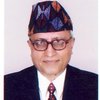Dr. Salahuddin Akhtar Siddiqui is the 4th judge I became friendly with ever since we met at seminars and talk programs organized by the Nepal Council of World Affairs. Three other judges intimately known to me are Mr. Kedar Nath Upadhyaya, former Chief Justice and my classmate at Padmodaya High School and Mr. Arvind Nath Acharya, former judge of the Supreme Court and my classmate at Tri-chandra College. Mr. Hari Prasad Sharma, former Chief Justice of the Supreme Court and myself were members of the Nepali delegation to Third UN Conference on the Law of the Sea that started in 1972 and continued for 10 years. But Mr. Sharma, then joint secretary in the Ministry of Law and myself, then Nepal’s Deputy Permanent Representative to the UN, attended the Geneva session for one month in the late seventies of the last century.
Dr. Siddiqui, former justice of High Court in Nepal from 2009 to 2018, holds a PhD from Nepal Sanskrit University and is Founder of Mother Foundation with a reputation for serving the nation for peace and development. He is keen on strengthening international relations as a law diplomat for the development of Nepal. Even after retirement two years ago, he has maintained his reputation as a research scholar and a legal consultant. He is associated with Nepal Academy as a researcher. He has several publications to his credit. Two books Family Regulations of Manusmriti (Hindu Scripture and Family Disputes in Nepal, BS 2072) and Family System of Scriptures, BS 2073) are noted for their scholarship based on in-depth research. He is a life member of several social organizations and has gained wide ranging experience from his active involvement in activities relating to human rights, rule of law, social service and political interaction. He has received prestigious awards, such as Law Achievement Award (2015), Excellent Law Book Award (2016) and Freedom of Religion and Belief Award (2017).
Judge Siddiqui has distinguished himself as a serious thinker and a candid commentator on a variety of issues of national and global concern. Coming as he does from a Muslim community, he thinks that political parties have exploited this community for their own selfish interests. He is not happy with the Muslim Commission, a Constitutional body, which has become, in his opinion, a ‘puppet’ of vested interests. He holds Muslims themselves responsible for not allowing the Muslim Commission to function independently in the interest of the Muslim community.
Judge Siddiqui is against rampant corruption in public life. Again, he is critical of politicians who take loans from internal and external sources in the name of national development. But these loans are spent on luxurious living of a few politicians, relegating citizens’ wellbeing to the background. He, however, welcomed the abolition of special funds for MPs in the budget for FY 2078/079.
Ensuring and maintaining public trust in the judiciary is a matter of deep concern to judge Siddiqui. He is of the view that at no cost should the impartiality and neutrality of the court be lost. All justices, he thinks, should be sensitive on this issue and take it seriously to enhance the prestige and dignity of the court. He quoted well known American President Abraham Lincoln who once said that it makes no difference to the country if one thousand people are fools, but one leader’s stupidity is enough to damage the image of the country.
According to judge Siddiqui, change in our behavior pattern is the need of the hour. On the imposition of lockdown to combat the Covid crisis, what is more important is how we behave to deal with this crisis.
In one of his messages judge Siddiqui commenting on a difficult situation that people of this country are passing through, he has advised all to keep on increasing their morale by constantly communicating with our loved ones, including our near and dear ones through dialogues and other exchanges.
Finally, I would like to conclude this brief article about judge Siddiqui by quoting an open letter he wrote recently to the Rt. Hon’ble Chief Justice of the Supreme Court. The Chief Justice, Dr. Siddiqui said, represents the entire country as the Supreme Court is the final arbiter, interpreter and dispenser of justice under the constitution. At a time when people are losing their lives in their hundreds every day, it is the responsibility of the Apex Court to protect their lives from Covid infection as government response alone is not enough. Judge Siddiqui made an humble request to the Chief Justice to exercise his judicial authority to save the lives of Covid patients at Bheri hospital in Nepalgunj, Banke by instructing both the government and army medical corps to visit Bheri hospital in order to protect the people’s lives.
I salute judge Siddiqui for his humanitarian gesture and spirit of service and cooperation. I am extremely delighted to find in him a conscientious and compassionate friend and well-wisher of all citizens in distress and desperately crying for help and cooperation. I wish him long life and good health. May God bless him to lead a peaceful life for many years to come.
Judge Dr Siddiqui has also sent a letter to Hon’ble Prime Minister of Shree Narendra Modi in which he has mentioned the special relations between two neighbors, Nepal and India. These bilateral relations are not only confined to formal diplomatic relations .They are marked by people to people contacts. Given this reality and considering the impact of Covid pandemic on both countries, judge Siddiqui has appealed to Hon’ble PM of India to pay attention to Nepalis in India who are placed in a critical situation due to the Covid crisis.

















